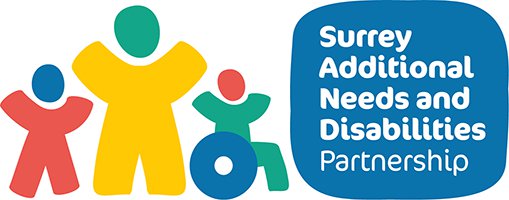Next Steps project
Next Steps - Preparing for Adulthood (PFA) is a project we are implementing which has a deliberate focus on young people with SEN in the 14 to 25 age group.
PFA is an approach that emphasises holistic and person-centred planning to help young people with additional needs to achieve their goals and to be able to live as independent a life as possible.
It should explain that conversations about PFA ought to be a routine part of the EHC plan process with updates at each annual review and that PFA covers 4 key areas (housing/independent living, staying healthy, being involved with your community and meaningful employment).
The National Development Team For Inclusion (NDTI) website has a page about Preparing For Adulthood, with a focus on routes to employment.
- For some young people with the most complex needs, full-time paid employment will not be possible but for the majority of young people with an EHCP, finding employment should be a realistic goal.
- For many young people, the barriers to gaining employment lie less with their own limitations than with the limitations which society places on them.
What are we trying to do?
Since the Children and Families Act came into force in 2014, there has been an impact felt throughout the system and the wider population of young people and families affected by the changes.
Education Health and Care (EHC) plans were previously provided up to the age of 19, but this changed to 25 which caused changes to take place around the whole system.
It has been identified that conversations about where a young person wants to be when they reach 25 do not happen early enough, but instead the focus is around what a young person wants to do the following year.
Often, if the previous year has been non-problematic and the individual and their family are relatively settled, the choice would be to remain for a subsequent year, even though this may not be the most outcome-focused or appropriate option for the young person.
The Three Pathways
Generally, young people are on three pathways.
- Those with the highest needs (approximately 11%) on the Adult Social Care pathway.
- Those with significant Health Needs (nationally it is 5%, but currently for Surrey it is less).
- The remainder (approximately 84% of Surrey's young people with an EHC plan) are on an employment pathway and options to support them with these goals are available in Surrey.
Clarity on available options
Currently, many families are using internet browsing to access options for young people and there has not been a formal structure and process for deciding which provision options would be most suitable, appropriate and matched to an individuals' skills, capabilities and ambitions. As a result, there is a lack of clarity on options and employment pathways which will impact on the future for that young person.
It's important to recognise that some young people learn best by doing, so learning on the job will suit them better than continuing in a formal learning environment.
Supported internships and apprenticeships still count as education, and the young person will still be supported through their EHC Plan.
Please see the videos on this page of different experiences of some of the options available to young people in Surrey.
What we want to do about it
What we feel young people could and should be gaining, where appropriate, is an understanding and experience of employment in alternative provision, which will help them develop practical life skills and to obtain employment and independence.
Moreover, for those young people on the Adult Social Care pathway, they should be undertaking Life Skills programmes to prepare them, for example, to ensure they can enter semi supported accommodation rather than fully supported accommodation through their EHCP while still supported by Children's services.
Our work will complement the targeted work that the Adult Transition team are undertaking, which involves attending Annual reviews in certain schools, initially with year 9 and 11.
We want to help young people reach their goals and aspirations which we hope to achieve by raising awareness and changing the ways of current thinking and the overall processes to combat many issues in the current system, including:
- better outcomes
- in-county provision
- targeted support
- fewer individuals on a not in education, employment or training (NEET) pathway
- higher rates of employability.
It is Surrey's ambition to improve the employment rates of adults with disabilities in Surrey.
Raising awareness through Early Intervention
There is a clear requirement to raise awareness externally and internally of the statistics across the board. There are 84% of people who have an EHC plan and are on an employment pathway who will not be eligible for Adult Social Care Services or Primary Health funding.
This means that when their EHC plan has ceased, and they are progressing to their next steps, there is a reduction in possible support options, and they often lack the necessary skills and knowledge to help them to progress at that point, on to an employment pathway.
Early Intervention will be the focus to help combat this.
